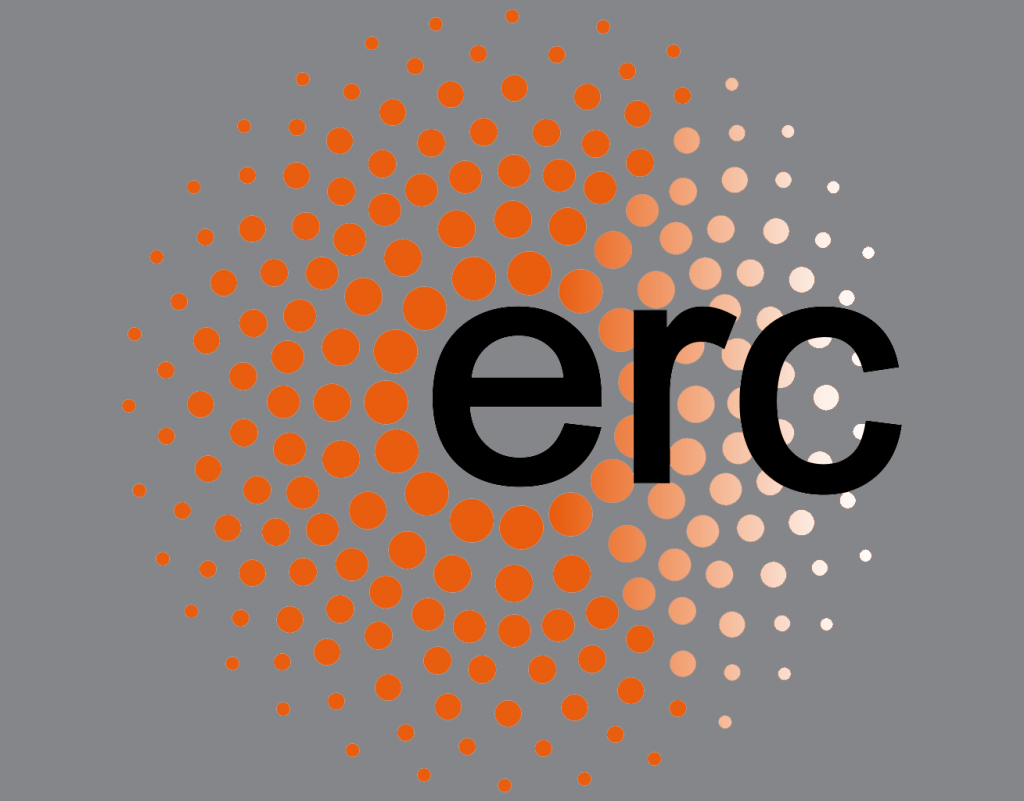Philosophers Win ERC Consolidator Grants (updated)
The European Research Council (ERC) has announced the 2017 winners of its large Consolidator Grants. Among the recipients are three philosophers:
Dragos Calma of the University of Cambridge, Catarina Dutilh Novaes of the University of Groningen, and Tuomas Tahko of the University of Helsinki.
Dr. Calma’s project, which received almost €2 million (approximately $2.36m) in funding, is “Neoplatonism and Abrahamic Traditions. A Comparative Analysis of the Middle East, Byzantium and the Latin West (9th-16th Centuries).” He describes it as follows:
The project offers a fresh and thoroughly documented account of the impact of Pagan Neoplatonism on the Abrahamic traditions. It focuses mainly, but not exclusively, on the Elements of Theology of Proclus (fifth century) which occupies a unique place in the history of thought. Together with its ninth-century Arabic adaptation, the Book of Causes, it has been translated, adapted, refuted and commented upon by Muslim, Jewish and Christian thinkers across centuries, up to the dawn of modernity. Despite a renewed interest in Proclus’ legacy in recent years, one still observes a tendency to repeat conventional hypotheses focused on a limited range of well-studied authors. This project radically challenges these conservative narratives both by analysing invaluable, previously ignored resources and by developing an innovative comparative approach that embraces a variety of research methods and disciplines.
Specialists in Arabic, Greek and Latin history of philosophy, philology, palaeography and lexicography develop an intense interdisciplinary research laboratory investigating the influence of Proclus on the mutual exchanges between the scriptural monotheisms from the ninth to the sixteenth centuries. Based on fundamental archival examinations in underused library collections, the project aims (1) to identify new Arabic and Latin manuscripts and to continue to explore a corpus of texts recently discovered by the PI, representing a largely unknown intellectual heritage; (2) to retrace the scholarly networks by which Neoplatonism was transmitted between the Middle East, Byzantium and the Latin West, with particular attention to the dynamics of exchange within each cultural milieu; (3) to analyse the impact of Proclus on the history of metaphysics and on the relations between philosophy and theology within the Abrahamic traditions. The project will achieve these goals through a collaborative, adapted methodology; its specific outputs will provide research tools for the broader academic community.
Dr. Dutilh Novaes’ project, “The Social Epistemology of Argumentation,” will be supported by a €1.7 million (approximately $2 million) grant. She provides the following description:
Prior theories fail because they are based on overly idealized assumptions. This project develops a more realistic approach: argumentation is viewed as a practice interwoven with power relations, occurring in situations of epistemic and social diversity, and involving agents who are not ‘purely rational’. We will formulate the first comprehensive account of the social epistemology of argumentation, i.e. of the role of argumentation in processes of circulation and production of knowledge, evidence, and justification. To this end, we will bring together two research traditions that so far remain largely disconnected: social epistemology and argumentation theory.
Our innovative hypothesis is that argumentation is a form of social exchange that can be successful to various degrees. What is exchanged are epistemic resources such as knowledge, evidence, justification, critical objections. Insights from social exchange theory will inform the investigation, a suitable framework for our purposes because it emphasizes the interplay between self-interest and interdependence. The result will be a realistic theory of the processes through which epistemic resources are shared and produced through argumentation. It will offer concrete prescriptions on how to optimize these processes, with wide-ranging applications wherever argumentation is crucial: scientific, legal, and political/public discourse.
Dr. Tahko was awarded nearly €2 million (approximately $2.375 million) for his project, entitled “The Metaphysical Unity of Science” (MetaScience). He writes:
The project will pursue the question of what, if anything, unifies the natural sciences. The project studies the question from the perspective of metaphysics and philosophy of science by way of employing case studies from biology, chemistry, and physics.
The project’s ambitious goal is to produce a novel account of unification. This is made possible by recent breakthroughs in the methodology of metaphysics, an area sometimes called “metametaphysics”. The project’s objectives are (1) to establish the criteria for scientific unification; (2) to conduct case studies of actual scientific reductions at the biology-chemistry and the chemistry-physics interfaces; (3) to study the role of dependence relations weaker than reduction.
The grants are intended to help researchers “consolidate your independence by establishing a research team and continuing to develop a success career in Europe.” The full list of 2017 Consolidator Grant winners is here, and data about the awards is here.
[note: this post was updated with a description of Dr. Calma’s project.]


Andrea Sangiovanni (King’s College London) also got it – the project is somewhat political science-y, but he is a bona fide philosopher and member of the King’s philosophy department.
Monica Brinzei also got it on Medieval Philosophy (CNRS, Paris): Project DEBATE: Innovation as Performance in Late-Medieval Universities.